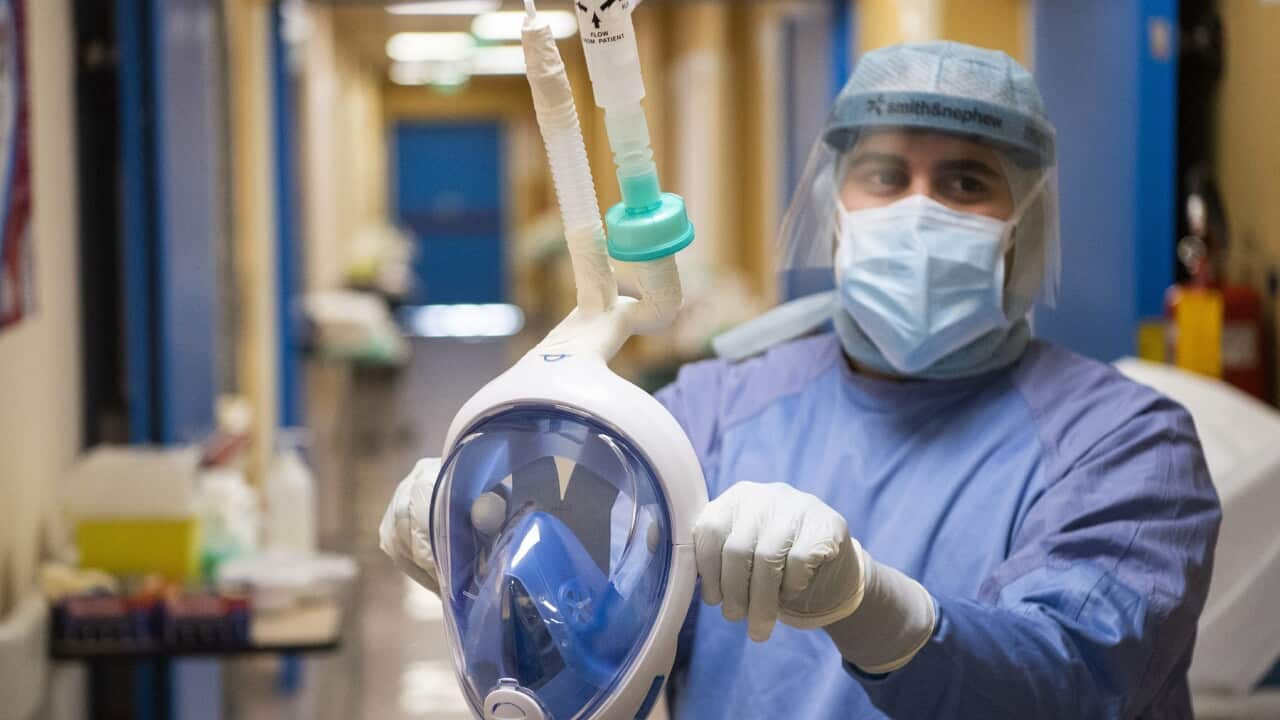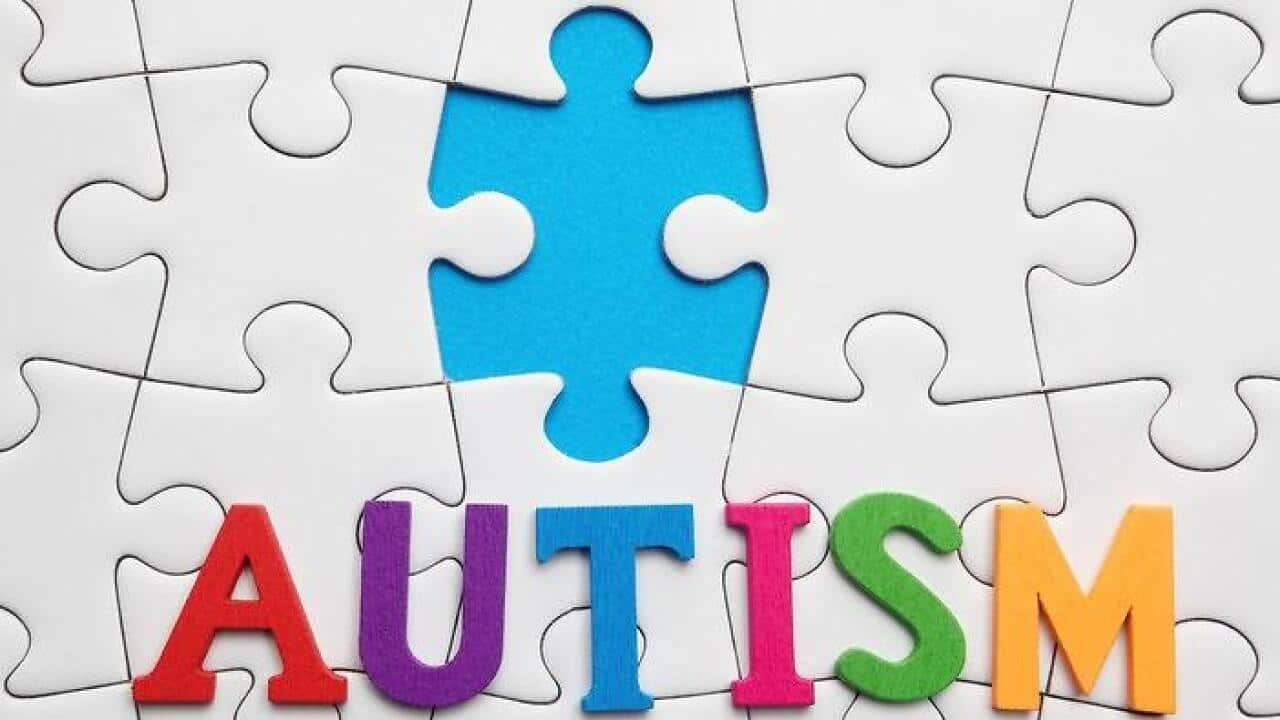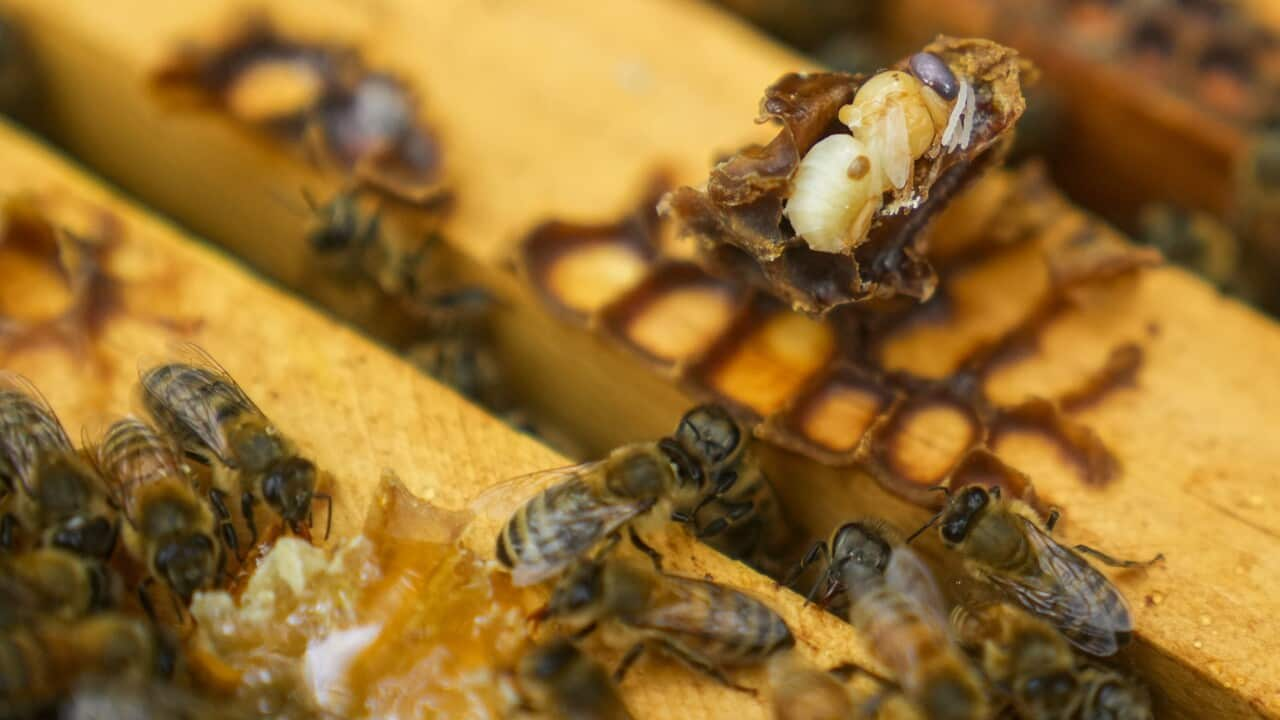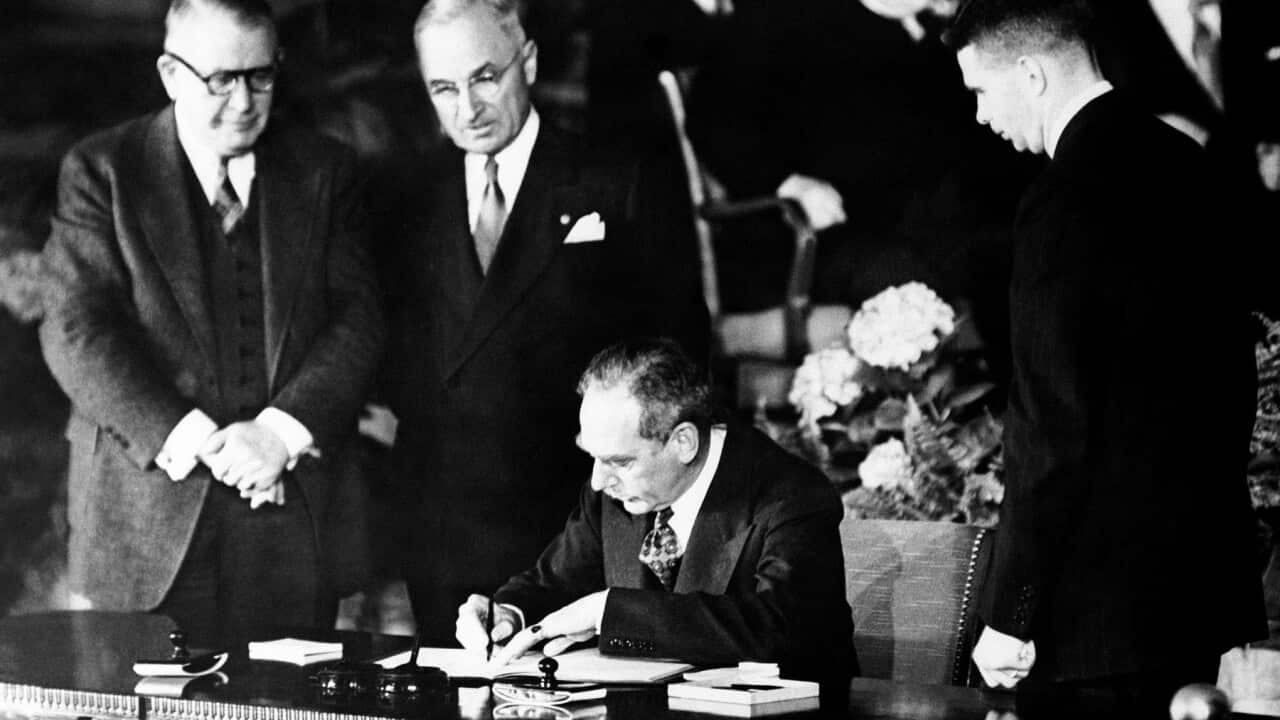Italian
Mentre gli ospedali del nord Italia erano sopraffatti da un numero crescente di pazienti affetti da coronavirus, i medici sono stati costretti a improvvisare.
Dopo aver esaurito le maschere a pressione positiva continua delle vie aeree, note anche come C-PAP, i medici hanno rapidamente trasformato dispositivi non medici, compresi i boccagli, in ventilatori di emergenza.
Il dottor Simon Joosten, ricercatore presso la Monash University di Melbourne e specialista delle vie respiratorie presso Monash Health, afferma di aver sentito parlare dell'estrema carenza di dispositivi di protezione individuale in Italia.
"It got me scared and worried that we were going to have the same situation in Melbourne and so I started testing the snorkel masks and CPAC masks at the uni because we do physiology research and we have a lab set up to do these kinds of tests."
Il dottor Joosten afferma che il design di una maschera da snorkeling da diporto consente l'erogazione di ossigeno mentre allo stesso tempo filtra l'aria espirata, limitando la diffusione di goccioline contaminate.
Ora che l'Australia è riuscita ad appiattire la curva del coronavirus, afferma che c'è più tempo per provare in sicurezza il prototipo modificato in ambito ospedaliero.
"If a patient's wearing it in the hospital they can breathe air in from the environment and not breathe out through that valve and that's a really interesting safety element to the mask which means that even if the mask was blocked off the patient could still breathe in air from the environment, it's an interesting set up that just doesn't exist in any medical devices at the moment."
La sperimentazione clinica dovrebbe iniziare la prossima settimana e durare per sei mesi.
In un'altra potenziale soluzione, i team della Monash stanno anche adattando le maschere di ventilazione C-PAP per i pazienti in condizioni critiche.
Le maschere C-PAP ordinarie hanno uno sfiato nella parte anteriore che impedisce ai pazienti di rirespirare il proprio biossido di carbonio.
Tuttavia, lo sfiato può anche consentire ai pazienti COVID-19 di diffondere il virus ad altri.
Il dottor Joosten afferma che i ricercatori hanno sviluppato una maschera C-PAP sigillata che, insieme alla maschera per lo snorkeling, potrebbe fornire un trattamento e allo stesso tempo minimizzare la diffusione del virus.
"They're a product that exists already but they're in short supply so it makes it imperative to know can we safely seal a regular C-PAP mask and will it perform the same way as a bespoke sealed C-PAP mask so that's the kind of work we're doing with that mask."
Mentre il mondo continua a combattere il coronavirus, molti paesi stanno esaurendo le forniture mediche e i DPI.
A New York, lo stato più colpito degli Stati Uniti, il governo ha stretto una partnership con altri sei stati del nordest per acquistare DPI, test, ventilatori e altre attrezzature mediche per un valore di 5 miliardi di dollari.
Andrew Cuomo, governatore di New York, afferma che la collaborazione li renderà più competitivi con i fornitori che vendono ai migliori offerenti.
"I also believe it will help us actually get the equipment because we have trouble still getting the equipment and just buying the equipment because these vendors on the other side, they're dealing with countries. They're dealing with the federal government."
English
After running out of Continuous Positive Airway Pressure masks, also known as C-PAP, physicians quickly transformed non-medical devices, including snorkels, into emergency ventilators.
Dr Simon Joosten, a senior research fellow at Melbourne's Monash University and respiratory specialist at Monash Health, says hearing about Italy's extreme shortages of personal protective equipment inspired him to act.
"It got me scared and worried that we were going to have the same situation in Melbourne and so I started testing the snorkel masks and CPAC masks at the uni because we do physiology research and we have a lab set up to do these kinds of tests."
Dr Joosten says the design of a recreational snorkel mask allows for the delivery of oxygen while at the same time filtering air as it is exhaled, limiting the spread of contaminated droplets.
Now that Australia has managed to flatten the coronavirus curve, he says there is more time to safely trial the modified prototype in a hospital setting.
"If a patient's wearing it in the hospital they can breathe air in from the environment and not breathe out through that valve and that's a really interesting safety element to the mask which means that even if the mask was blocked off the patient could still breathe in air from the environment, it's an interesting set up that just doesn't exist in any medical devices at the moment."
The clinical trial is expected to begin next week and last for six months.
In another potential solution, the Monash teams are also adapting C-PAP ventilation masks for critically ill patients.
Ordinary C-PAP masks have a vent in the front that prevents patients from rebreathing their own carbon dioxide.
However, the vent can also allow COVID-19 patients to spread the virus to others.
Dr Joosten says researchers have developed a sealed C-PAP mask which, along with the snorkel mask, could provide treatment while minimising virus spread.
"They're a product that exists already but they're in short supply so it makes it imperative to know can we safely seal a regular C-PAP mask and will it perform the same way as a bespoke sealed C-PAP mask so that's the kind of work we're doing with that mask."
As the world continues to fight coronavirus, many countries are running critically low on medical supplies and PPE.
In New York, the hardest hit state in the United States, the government has formed a partnership with six other northeast states to purchase $5 billion dollars worth of PPE, tests, ventilators and other medical equipment.
New York governor Andrew Cuomo says teaming up will make them more competitive with suppliers who sell to the highest bidders.
"I also believe it will help us actually get the equipment because we have trouble still getting the equipment and just buying the equipment because these vendors on the other side, they're dealing with countries. They're dealing with the federal government."
Report by Cassandra Bain




